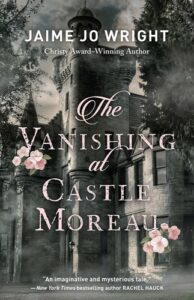I’m often a bit confused as a reader when I enter a bookstore to look for a mystery and find myself in the suspense section. Now that I’m an author, I find it can still cause me to smile when my books are labeled as suspense and in my mind, they’re definitely more of a mystery. I’m not sure that there has ever been a firm definition provided as to the difference, but I’m going to take a stab at it. (Pun intended)
Suspense is high-octane, fast-paced, with a villain who has a relatively clear purpose. Mystery is riddled with questions, unclear villain, unclear motives, secrets, and a page-by-page discovery. It can also be a slow burn.
I think suspense is a more universal term for anything that includes death, murder, action, fear, and adventure. But let’s not underestimate these fundamental differences in a story. While a suspense novel and a mystery novel may both sport a murder victim, in suspense, more likely than not, the scene will take the reader catapulting through the situation, riddle them with horror, and often include car chases, running, gun fire, and or the deeply intense forensic investigative scenes as found in a lot of law enforcement thrillers. In a mystery, the scene will often take a slower pace, small details hinting toward larger clues that become big pieces to an overarching puzzle. Questions of motives, suspects, and unknown dangers lurk around the corners. It can even take a more literary approach in tone as well, sometimes being prone to longer and more psychological descriptions.
Still, both suspense and mystery can be thrillers. A good way to itemize these would be a suspense thriller could very well land you reading a novel about Jack Reacher, while a mystery thriller can have you following the paths of Inspector Poirot.
Suspense over mystery, or mystery over suspense? I think that perhaps this is one reason why the waters become muddied between these two genres, and that is because more often than not, if you read one, you read the other. It’s not a competition so much as a classification technicality. In the end, both have mysteries, and both are suspenseful. Both can carry a romantic thread, a horror angle, a thriller twist. I believe anyone who asks what the difference is between suspense and mystery, may more or less be asking for the mere sake of conversation.
So let’s go a little bit deeper and dare to suggest some novels that I personally believe show the difference between suspense and mystery remarkably well:
Last month, I picked up a novel written by Wendy Webb, titled, The Keepers of Metsan Valo. In it, there were hints of thriller with the inclusion of the paranormal, visions, some midnight sleep-wandering, and of course, accidents that appear to be attempted murder. There were also threads of romance, definitely family dysfunction, a creepy old house, and the hints of many, many secrets and lore. What the novel did not have, were shoot-outs, a fast-pace, multiple murders with graphic action or detail, and so forth. I would classify this novel as a “mystery”. If you are looking for edge of the seat suspense and a book that will keep you moving fast, this story will not—unless “moving fast” means turning pages fast, then that’s another argument for another because this one certainly will!
Another novel I drew from my toppling, leaning tower of To Be Reads was the novel written by the best-selling author, Lynette Eason, Life Flight. It fit the M.O. of a suspense from the moment I opened the first page and a chase ensued, hot on the trail of a vicious killer and in the path of a forest fire. Fast enough for you? I chewed off a few fingernails and continued on, only to read multiple scenarios of danger all surrounded by law enforcement, hot heroes, and strong female leads. (Those last two aren’t qualifiers for suspense or mystery, they’re just a prerequisite for a good book in my … book). Anyway! Was there mystery in this novel? Oh yes, in that, I didn’t know who the killer was nor was I one-hundred percent sure of their motive. But in the end, it was edge of the seat, suspenseful, riveting and moved like a rollercoaster at Mach speed. Hence, why I would classify this novel by Eason as Suspense.
All in all, can we argue the fine print? Yes. Can we agree on a broad sweep of the arm and say there is a difference between mystery and suspense? Yes. I believe we can find commonality there as well.
But then, who has time to debate too long and hard with all these fabulous suspenseful and mysterious stories on that bookshelf to be read?
In the words of a famous detective, “the game is afoot” . . . so go solve it!
***


















